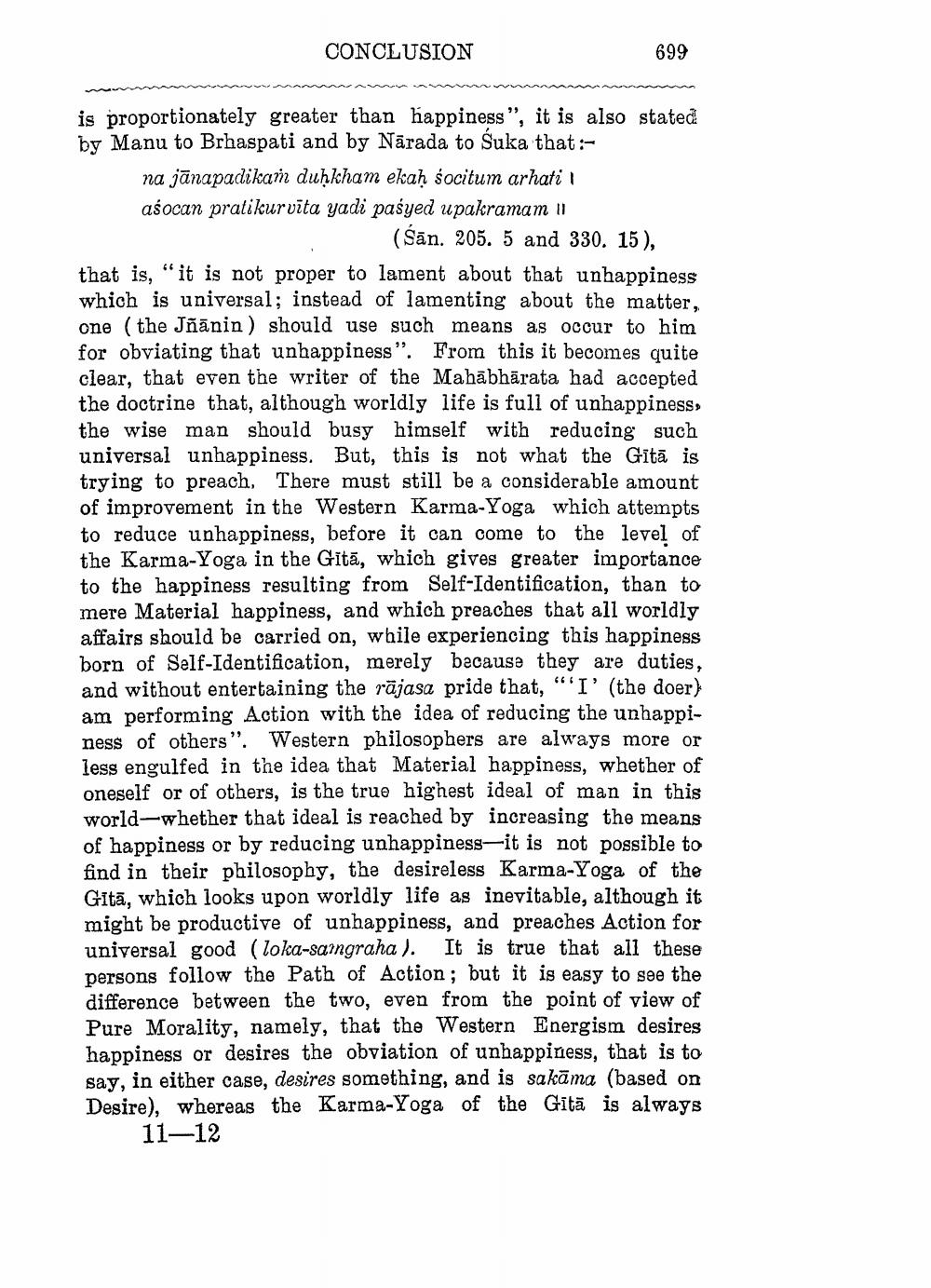________________
CONCLUSION
699
is proportionately greater than happiness", it is also stated by Manu to Brhaspati and by Nārada to Suka that:
na jānapadikai duḥkham ekah socitum arhati i asocan pratikur vita yadi paśyed upakramamu
(Śān. 205. 5 and 330. 15), that is, “it is not proper to lament about that unhappiness which is universal; instead of lamenting about the matter, one (the Jñānin) should use such means as occur to him for obviating that unhappiness". From this it becomes quite clear, that even the writer of the Mahābhārata had accepted the doctrine that, although worldly life is full of unhappiness, the wise man should busy himself with reducing such universal unhappiness. But, this is not what the Gītā is trying to preach. There must still be a considerable amount of improvement in the Western Karma-Yoga which attempts to reduce unhappiness, before it can come to the level of the Karma-Yoga in the Gītā, which gives greater importance to the happiness resulting from Self-Identification, than to mere Material happiness, and which preaches that all worldly affairs should be carried on, while experiencing this happiness born of Self-Identification, merely because they are duties, and without entertaining the rājasa pride that, "'I' (the doer am performing Action with the idea of reducing the unhappiness of others". Western philosophers are always more or less engulfed in the idea that Material happiness, whether of oneself or of others, is the true highest ideal of man in this world-whether that ideal is reached by increasing the means of happiness or by reducing unhappiness—it is not possible to find in their philosophy, the desireless Karma-Yoga of the Gitā, which looks upon worldly life as inevitable, although it might be productive of unhappiness, and preaches Action for universal good (loka-sangraha). It is true that all these persons follow the Path of Action; but it is easy to see the difference between the two, even from the point of view of Pure Morality, namely, that the Western Energism desires happiness or desires the obviation of unhappiness, that is to say, in either case, desires something, and is sakāma (based on Desire), whereas the Karma-Yoga of the Gita is always
11-12




